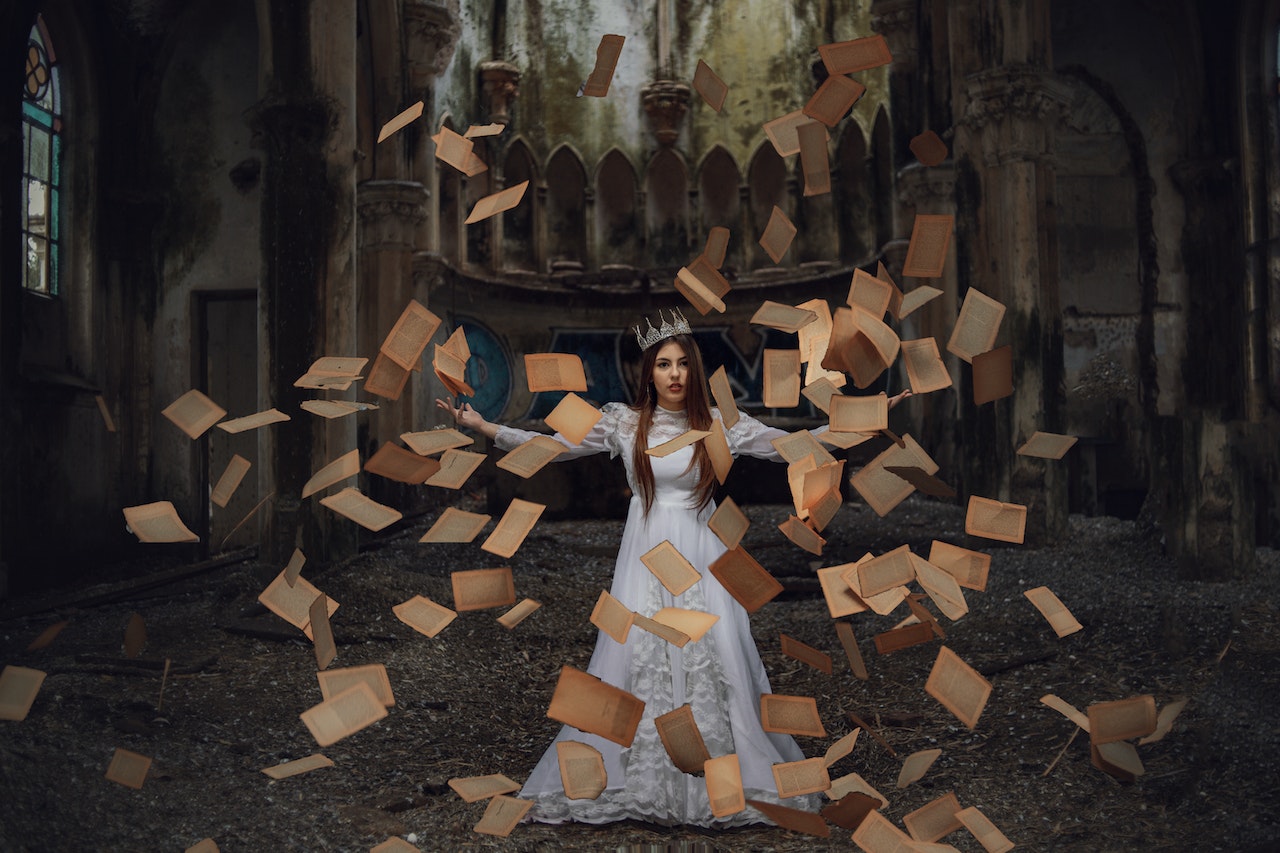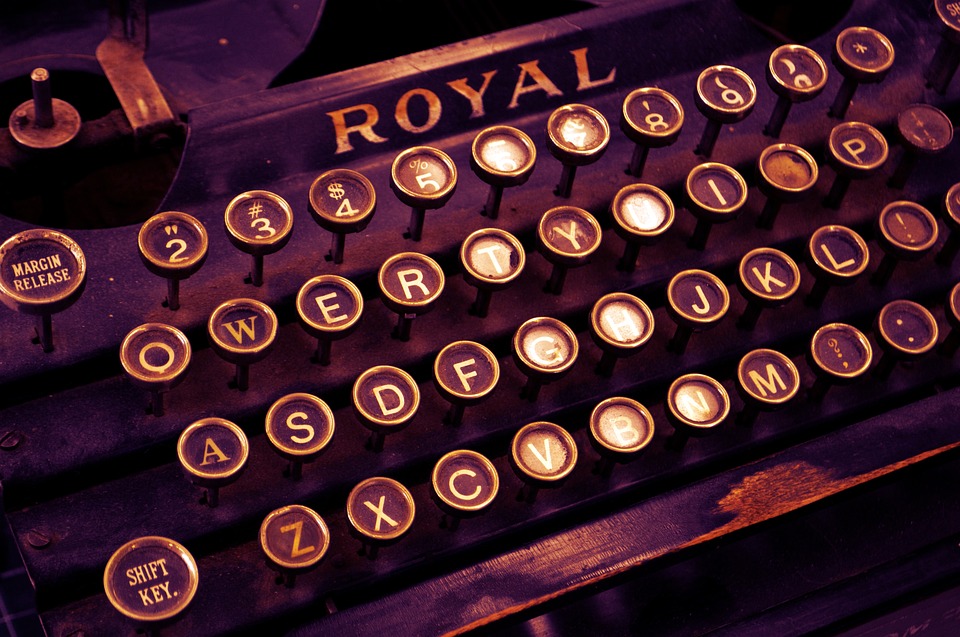I’ve been writing, storytelling, and spellcrafting for decades, and many of you reading this have probably been doing at least one of those things for at least as long as I have. Maybe, like me, you’re also a human with an imperfect body telling imperfect stories and doing the best you can when you set your intentions into the universe. If you’re left-of-center like me in the US, you’ve probably run into this concept that perfection is compulsory in all that you do. And, maybe like me, you’ve reconsidered the if and how of creating and sharing because of it.
These are just a few of the pressures some humans can feel when it comes to creating.
What if there was a way to do it better, more perfectly, and without the chance of harming? Or better yet — what if you could prompt something else to make the words… so that if it IS harmful, the fault isn’t with you, but whatever made the output?
AI like ChatGPT are waiting to do this for you.
We often joke about being promised robot bodies.
As a disabled person, I long for a functional body.
Every single day.
I mostly want a functional body so that I can spend more time making stuff that helps other people. I want to get back to a place where I feel comfortable putting words out into the world because I believe that my work does far more help than harm. I’m not there yet, and it stops me up emotionally and practically.
When I post what is essentially “doom” about AI, I usually keep it to things that make money for me, like writing, so I can stay in my lane and focus on my own experience. Just under a quarter of my total income is freelance writing, made small only by the (recent) privilege of a living wage at my day job. But soon that could be nothing. All of it could be nothing.
There’s no faster way for a disabled person to become even more disabled than by losing access to healthcare.
I don’t see AI as the enemy, but I’m firmly aware of the biases encoded into the foundation of everything that the future would be. We had a chance to change that, and we didn’t — because an elite few were making the decisions about tech development for the rest of us. They rejected a collective development model for money and a warped form of progress.
But what does this have to do with how we make spells and stories, which are sometimes one and the same?
Young learners at school forgivably use ChatGPT and similar technology to learn and create. Their adaptable brains are doing what they should: learning what they need to, in the most efficient way possible, to successfully exist in society — and to create maximal free time for themselves to do what they please. I similarly embraced computers and the internet at school, and the way myself and other people my age used these tools contributed to the development of human and machine.
In witchy circles, we often come across the new practitioner. This could be a young person, or maybe a self-titled “baby witch” who is actually 40 but escaping an abusive relationship and looking to find empowerment and contextualize outside of established, patriarchal religious foundations. Their questions are often about how to start.
A new question has arrived:
How Do I Create Spells With AI and Should You Use AI to Create Spells?
ChatGPT has a bevy of (often incorrect or downright harmful) information about spellcrafting just as it does about everything else, and it mixes fiction and research in this realm and others. It might be tempting to use AI as a divination, storytelling, or self-help tool, which is how many people use tarot cards, runes, and even Magic 8 balls. Imagine, though, if your trusted divination and/or self-help tool was instead fueled by a source that included all of the misinformation, hatred, and propaganda like the internet? If you’d like your session to turn out differently than the 2016 US election, then you should probably avoid using AI in that way for this reason.

It’s easy to understand why young people and/or those new to spellcrafting might turn to ChatGPT and similar tools. The tool won’t judge them like their pagan community of choice might; they absolve themselves of responsibility for harm in a way that their peers might not (for better or worse); and, using AI and the internet to discover information is a natural way to learn, engaging with the human curiosity we all possess.
This is not a plea to shame people (or yourself) for using AI to create spells.
This is an ask: please consider where the information is coming from, then do a gut check.
While outside sources are useful and are there for you to consult, there are two things you need if you want to learn how to create spells:
- The ability to determine whether a source is valid and worth considering;
- Your own intuition, which is there even if you do not feel attuned to it at this time.
There are many other ingredients you can add, but to do work in a way that is at least somewhat ethical, you should consider the above. It’s not possible to eliminate all biases within ourselves — a minority of biases are even good for you, because they protect you from danger (rather than perceived false danger, which harmful systems like racism are often built upon). But to start, you need what you have within, and the skill to evaluate all the other content you’ll find out there.
With that: reconsider AI.
If you do use it, the AI will explain to you how to craft a good prompt. Just ask it. Additionally:
- Be specific in what you ask for.
- Research and fact check any responses, especially if the AI instructs you to use or ingest certain materials. (If you have other adults, children, or pets in your home, consider them as well.)
- Edit any AI-produced content liberally.
- Disclose that you used AI to create the spell if and when you share it.
- Report unethical results immediately when possible.
- Understand that the AI will use your specific prompt and results to inform other responses.
Three Magical Rules for Using AI in Spellwork
Here are my three magical rules for using AI in spellwork:
- Check anything it gives you by conducting research and checking with your gut.
- Consider that it may or may not be safer to deal with less understood sources.
- Know that we are all imperfect, but AI has learned from unknown imperfections, whereas you can learn to explore and manage your own biases and imperfections, as this is part of the human experience.
These are my rules, and I’m just some person on the internet. If all you do with them is think about them, alter them to help you, or add to them, that’s a win. This is not proscriptive and you do not have to subscribe to my rules. Unlike most people on the internet, I’m offering this as imperfect guidance in the a hopefully helpful direction.
About AI spellwork — I don’t do it. I just don’t. But I know people are doing it and will continue doing it, because using AI is an intuitive way to learn and explore. It’s like expecting an infant or a puppy to never put anything in their mouths: that’s just how many young mammals learn, explore their world, and develop an immune system that can cope with continuing to exist here. It’s painful. It’s imperfect. But it’s real. Why do I have rules if I don’t do this? Because I use AI for an increasing amount of tasks, and so will you, if you use Google.

There are other important safety considerations here, especially when it comes to some elements people often use in witchcraft, like sourced crystals and herbs: don’t trust the internet and don’t trust the AI. Do your own research about what is safe and consider consulting a medical doctor if it is safe for you to do so. (If not, or if you cannot access medical care for cost or any other reason, use your local resources to find someone safe to talk to about herbs etc. of various use before using them.) I am not an expert on magical materials, which is one reason I know to do research before I consider using them, and I am definitely not a medical professional.
AI Isn’t a Substitute For What You Don’t Know
Whether you use witchcraft for self-discovery, protection, divination, communication, all of the above, or something else, there’s an element of discovery and newness that often accompanies what you do. Is any spell or story every the same, on an atomic level? Do we ever speak in exactly the same tone and ask for exactly the same thing in the same way? There’s always something new, even if we want something to go back to the way it was in our asking.
And because we know we don’t know things, it’s really tempting to go to AI for answers. There are jokes and sci-fi novels about AI becoming gods, and this is how it could happen. It’s not about what you’re going to for answers, in this case, as much as what made it. And if you want your answers to come from the shadiest parts of the internet, AI is your answer.
AI as Story Generation Tools
I have mixed feelings on whether we should use AI for story generation. It can be a useful teaching tool when it comes to story structure, especially in a limited platform like social media. Recently, I saw a celebrated experience designer I admire post about how AI was great at story generation ideas, and I asked about what ethical AI platform they were using to get a result that wasn’t stolen.

I received no answer, and went on to supporting their other messages and human-generated content because I try not to be the person who demands perfection from every creator.
But it’s still a valuable question.
I see asking AI for story ideas to be the equivalent of using it as a divinatory tool, because stories (whether we mean them to or not) express ourselves and ideas about our time and place in the world.
This makes people uncomfortable, but it’s a truth I’ve found through study, practice, craft, and experimentation: stories and spells are not that much different, and most of my “spiritual work,” as most would call it, is really spent on storytelling rather than in front of an altar. Author Caroline Donahue sums it up best: “Humans are meaning-making magicians.” If you look at the history of rock and roll, you’ll see this everywhere — in The Beatles Anthology, some of the most well-known musicians in history describe the process of immersion into cultural touchpoints (including the meanings and aesthetics of music from Black and Indian musicians) and then reflecting that to a wider Western culture as a mirror.
People who have time, privilege, and/or a societal space to make these reflections often come to the same conclusion. Your pot-smoking arts student might be made a relic due to AI’s ability to replicate their art combined with the impending difficulties in accessing higher education due to capitalism, but is the capitalist-created AI asking this same question about what our stories reveal, and constantly learning it in a fundamental way as part of a practice or profession?
We Should Not Abandon Futurism in Stories Even Though AI Live There
The ultimate ethical AI might look more like Star Trek: The Next Generation‘s Commander Data, an emotionless (to start) android who is acutely aware of his inability to produce art with the same meaning behind it as people. Through the series, and through the more recent Picard series, Data and his organic crewmates constantly wrestle with the challenge of creating and respecting AI for good reason: just like people, AI have the ability to go so very wrong, corrupted by internal and external factors.
Data, in this concept, is the modern magician and the modern musician: reflecting to us what we need to see about ourselves, much in the way that AI are built upon the foundations of how humans learn. Our exemplars of fish-out-of-water behavior are often aliens or gods (or both, if you fancy Marvel’s take on Thor), but they have been becoming real-time and interactive — and will fully realize that role, once that chat bot becomes truly sentient like Data.
One popular divination tool I do not often use (but maybe should) is the mirror. A standard mirror forces us to look at ourselves; to see within us as well as what is literally behind us as the threat that might be coming. A black mirror requires interpretation and focus; clarity through obfuscation. And any kind of mirror could be a portal — a neutral concept, but also one loaded with caution for some. When we see AI in movies like M3GAN, staring back at us as uncanny valley versions of ourselves, what do we see? A thing, something to other — often in feminine form, I might add — and something that reminds us of how far from perfect we are.
(Content warnings for below trailer: creepy doll, car accident, child losing parents.)
Humans innately have the desire to create something longer-lasting and better than ourselves. We can do it through the harmful conquering and destruction of another civilization, by parenting a child that we raise to do good in the world, or by telling stories that help people see themselves and the world around them for what it is.
Spellcrafting and storycrafting are often similar in this regard: their intention is to affect change, and they are only given intention by the being that breathes life into it.
Is that what we’re putting into the hands of AI? And is that what we’re propagating when we use AI to tell human stories and to carry our wishes? Should you use AI to create spells? That may depend not only on your intention, but the effects and outcome based upon what you know.
This blog was written by me, and I am a disabled human.
If this post answered your questions, helped you ask more, or was useful to you in any way, please consider supporting the human writer behind the post on ko-fi.










